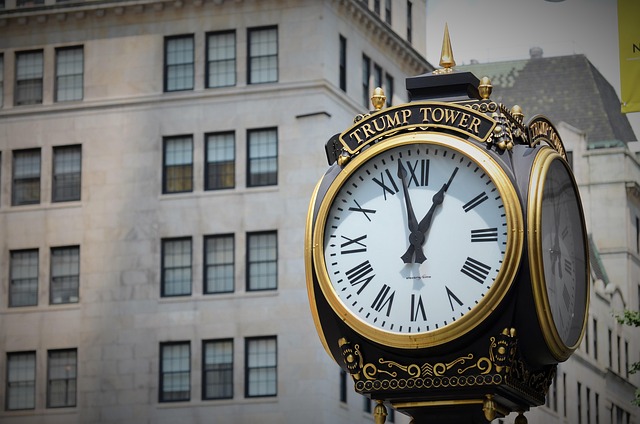# Eric Trump’s NYC Comments: Political Social Experiment Debate
Eric is an important subject that many people are interested in learning about, particularly when it comes to understanding the intersection of political commentary and social experimentation in today’s media landscape. The recent discussions surrounding Eric Trump’s comments about New York City have sparked widespread debate about whether such statements constitute genuine political discourse or elaborate social experiments designed to gauge public reaction.
## Understanding the Basics

The phenomenon of political figures making controversial statements about major cities has become increasingly common in recent years. When examining Eric Trump’s comments about NYC, we must consider the broader context of political communication strategies and their intended audiences. These statements often serve multiple purposes: energizing a political base, drawing media attention, and sometimes testing public sentiment on specific issues.
Political social experiments, whether intentional or not, have become a fascinating aspect of modern discourse. They reveal how different demographics respond to various narratives and help shape future messaging strategies. The concept involves introducing specific talking points or controversial statements into the public sphere to observe reactions, engagement levels, and the spread of information across different media platforms.
Understanding this dynamic requires recognizing that political communication in the digital age operates on multiple levels simultaneously. Surface-level messaging reaches immediate audiences, while deeper implications resonate through social media echo chambers, traditional news coverage, and grassroots political movements. The complexity of these interactions makes it challenging to determine whether statements are calculated experiments or spontaneous expressions of personal beliefs.

## Key Methods
### Step 1: Analyzing Communication Patterns
The first step in understanding political social experiments involves examining the timing, platform, and context of specific statements. When Eric Trump makes comments about NYC, analysts look at factors such as the current news cycle, upcoming elections, and recent policy developments. This analysis helps determine whether the timing suggests strategic planning or opportunistic commentary.

Social media metrics provide valuable insights into the experimental nature of political statements. Engagement rates, sharing patterns, and demographic breakdowns of responses can indicate whether a statement was designed to reach specific audiences or generate particular types of reactions. Professional political communicators often track these metrics to refine their messaging strategies.
The language used in political statements also provides clues about their experimental nature. Carefully crafted phrases that seem designed to provoke specific responses often indicate strategic communication rather than spontaneous commentary. Researchers analyze word choice, emotional triggers, and rhetorical devices to understand the intended impact of political messages.
### Step 2: Measuring Public Response

The second crucial method involves systematically measuring and categorizing public responses to political statements. This process includes monitoring traditional media coverage, social media discussions, and public opinion polling data. The goal is to identify patterns in how different groups interpret and react to specific messages.
Geographic analysis plays a significant role in understanding political social experiments. When Eric Trump comments about NYC, researchers examine how responses differ between urban and rural audiences, different states, and various demographic groups. These variations provide insights into the effectiveness of political messaging strategies and their intended targets.
Sentiment analysis tools help quantify emotional responses to political statements. By analyzing the tone and emotional content of public reactions, researchers can determine whether statements successfully achieved their intended emotional impact. This data becomes valuable for understanding the experimental aspects of political communication and predicting future messaging strategies.

### Step 3: Evaluating Long-term Impact
The third method focuses on assessing the lasting effects of political statements and their role in shaping public discourse. This involves tracking how specific comments influence subsequent political discussions, policy debates, and electoral outcomes. Long-term analysis helps distinguish between tactical communication moves and genuine policy positions.
Media coverage evolution provides important insights into the experimental nature of political statements. Initial reactions often differ significantly from how stories develop over time, and this progression can reveal whether statements were designed to generate specific types of ongoing discussion or simply to capture immediate attention.
The ripple effects of political social experiments extend beyond immediate responses to influence future communication strategies, opposition messaging, and public expectations. Understanding these broader implications helps explain why political figures might deliberately engage in controversial commentary as a form of social experimentation rather than straightforward political communication.
## Practical Tips
**Tip 1: Critical Media Consumption** – Develop the habit of analyzing political statements through multiple lenses before forming opinions. Consider the timing, audience, and potential strategic motivations behind controversial comments. Look for patterns in how political figures communicate about specific topics over time, and pay attention to whether their statements seem designed to provoke particular reactions rather than convey straightforward information.
**Tip 2: Source Verification** – Always verify political statements through multiple reliable sources before sharing or responding to them. Political social experiments often rely on rapid information spread through social media, and fact-checking helps prevent the amplification of misleading or taken-out-of-context information. Maintain awareness of your own biases and seek out perspectives from across the political spectrum.
**Tip 3: Context Analysis** – Examine the broader political and social context surrounding controversial statements. Consider current events, upcoming elections, recent policy developments, and ongoing political narratives that might influence the timing and content of political communications. This contextual understanding helps distinguish between genuine policy positions and strategic messaging experiments.
**Tip 4: Pattern Recognition** – Track patterns in political communication over time to better understand individual politicians’ messaging strategies. Notice when statements seem designed to distract from other issues, energize specific voter groups, or test public reaction to potential policy positions. Developing this analytical skill helps you become a more informed and critical consumer of political information.
**Tip 5: Constructive Engagement** – When participating in discussions about controversial political statements, focus on substantive policy issues rather than getting caught up in emotional reactions to provocative comments. Ask questions about underlying policy implications and seek to understand different perspectives rather than simply defending or attacking political figures. This approach helps prevent political social experiments from derailing meaningful civic discourse.
## Important Considerations
When analyzing political social experiments, it’s crucial to maintain objectivity and avoid falling into partisan interpretation traps. The tendency to view political statements through pre-existing ideological filters can prevent accurate assessment of their experimental nature and intended purposes. Researchers and citizens alike must work to separate their personal political preferences from their analysis of communication strategies.
The ethical implications of political social experiments deserve serious consideration. While testing public reaction to various messages might seem like harmless political strategy, it can contribute to increased polarization, misinformation spread, and erosion of trust in political institutions. Citizens should be aware of these potential negative consequences when engaging with experimental political content.
Understanding the difference between deliberate experiments and spontaneous political commentary requires careful analysis and often cannot be determined with complete certainty. Political figures may engage in seemingly experimental behavior without conscious strategic intent, while other apparently spontaneous statements might be carefully calculated. This ambiguity is itself an important aspect of modern political communication that citizens must navigate thoughtfully.
## Conclusion
The intersection of political communication and social experimentation represents a significant aspect of contemporary democratic discourse that deserves serious attention from citizens, researchers, and political participants alike. Whether Eric Trump’s comments about NYC constitute deliberate experiments or genuine political expression, they highlight the complex nature of modern political communication and its effects on public discourse.
Understanding these dynamics empowers citizens to engage more thoughtfully with political information and resist manipulation through emotional or provocative messaging. By developing critical analysis skills and maintaining awareness of communication strategies, individuals can participate more effectively in democratic processes while avoiding the pitfalls of political social experiments designed to divide rather than inform.